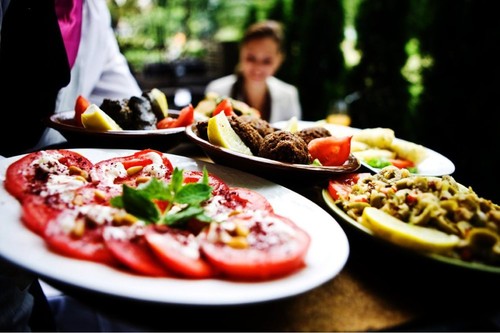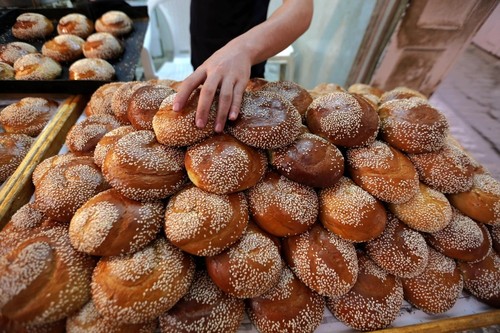Holidays are a joyous occasion to enjoy some quality family time and dinner tables are often filled to the brim with the most delicious meals. However, this holiday, it might better to keep things simple since the Ramadan holiday, Eid al-Fitr, comes right after the month of Ramadan during which Muslims fast from dawn to sundown for 30 days.
The Cardiology Education supervisor at Istanbul Bağcılar Center for Health Practices and Application and academic at Health Sciences University in Istanbul, Associate Professor Ertuğrul Okuyan marked that diabetics, high blood pressure and cardiovascular patients should refrain from eating dessert and pastries, a norm for the Ramadan holiday, especially in Turkish culture.

Speaking to Anadolu Agency (AA), Okuyan warned diabetics, high blood pressure and cardiovascular patients against consuming excessive food and sweets during the holidays and gave a few suggestions on how to apply caution when eating.
Explaining that people who fast are psychologically prone to excessive eating along with returning to their regular eating schedule during the Ramadan holiday, Okuyan stressed that such patients should avoid sweets and carbohydrates with their health in mind.
Reiterating that the total fasting time was 18 hours per day this Ramadan, Okuyan said, "The human body needs time to be able to go back to the previous eating schedule before Ramadan. However, when the Ramadan holiday is mentioned in Turkey, there comes the images of services full of traditional desserts and pastries. Hence, it is generally difficult for Turkish society to easily cope with this adaptation process. Instead of a mild adaptation process, a chaotic conflict starts for the Turkish society. Bodies, which were adapted to eat two times a day after fasting 18 hours, face shock with sudden high-calorie foods and desserts served on and off throughout the day. Thus, there comes a period resulting in putting on weight so fast."
After a general evaluation, Okuyan focused on the situation of diabetics, cardiovascular and high blood pressure patients.

"This adaptation period coming with the Ramadan holiday may result in serious problems for such patients. It is possible to overcome this process with minimum problems thanks to some practical methods. For example, it will be wise to have a light breakfast and be careful not to skip a meal throughout the day. Fast eating habits resulting from a long-lasting hunger seen during Ramadan must be changed with eating less and often. They must avoid pastries, fried and fatty food as they lead to bloating, indigestion and sickness," said Okuyan.
According to experts, people must be cautious about consuming desserts and chocolate and try to resist the insistent attitude of the host. If it is difficult to resist your own desire to eat dessert, you can consume dairy desserts such as puddings instead of high-calorie desserts prepared with pastries and syrups.
As the metabolism slows down throughout Ramadan, liquid consumption must be increased up to about 2-to-2.5 liters a day. As decreased metabolism may result in weight gain, it is important to exercise in addition to watching what you eat. Internist and gastroenterologist Professor Cengiz Bölükbaş mentioned the possible digestion problems faced during the Ramadan holiday and gave some advice on minimizing them.
According to Bölükbaş, it is important to consume less during meals to be able to cope with the adaptation process.
"The Ramadan holiday, which is actually a feast, should not be taken as 'the feast of eating.' Thinking about the well-being of your stomach, you should keep away from excessive eating, especially desserts and greasy fried foods. Try to eat slowly throughout this process and prefer organic products," said Bölükbaş.
To be able to overcome this adaptation process in the best way, you should re-evaluate this three-day holiday. Try not to forget that this is not the feast your stomach desires; this is a spiritual feast. All the sweets and desserts served are nothing but extra calories and instead, consuming fresh or dried fruits would be a good alternative. You do not have to eat everything on the plate served to you. Shocking your metabolism suddenly by eating quickly may result in pancreatitis, which may lead to serious life-threatening conditions. Diarrhea may also occur as a result of consuming excessive greasy foods or high-calorie desserts. Lastly, it is important not to consume too much meat during this period.
Keep in mind that excessive sugar consumption may even result in a coma for diabetics, while consuming too much tea or coffee triggers acid reflux.